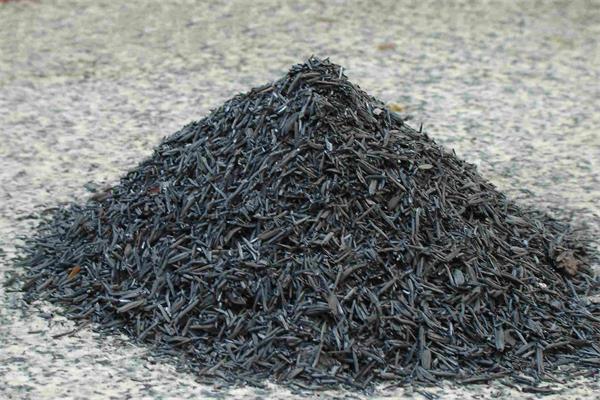Agricultural resilience in the face of climate change, resource constraints, and shifting environmental conditions is a paramount concern for global food security. In recent times, the emergence of mobile biochar production has become a beacon of hope for farmers worldwide. This dynamic and versatile solution is proving to be a game-changer, offering multifaceted contributions to agricultural resilience. In this comprehensive exploration, we delve into the ways in which mobile biochar is fortifying agriculture, ensuring sustainable growth, and mitigating the challenges posed by a rapidly changing world. View the Beston mobile biochar machine.

I. Biochar Basics and Agricultural Resilience
A. Understanding Biochar's Role in Soil Health
Biochar, a form of charcoal produced through the pyrolysis of organic materials, has long been recognized for its soil-enhancing properties. The porous structure of biochar provides an ideal habitat for beneficial microorganisms, improves nutrient retention, and enhances water-holding capacity, all of which are crucial factors in building agricultural resilience.
B. The Mobile Advantage: Adapting to Changing Conditions
Mobile biochar production takes the inherent benefits of biochar a step further. Its portability allows farmers to deploy biochar directly to the fields, adapting to changing conditions and addressing localized challenges promptly. This adaptability is a cornerstone of agricultural resilience in the face of unpredictable climate patterns and dynamic environmental shifts.
II. On-the-Go Sustainability
A. Flexibility in Application
One of the key contributions of mobile biochar to agricultural resilience lies in its flexibility. Farmers can produce biochar on-site, tailoring its application to specific crop needs and environmental conditions. This on-the-go approach ensures that agricultural practices remain adaptable, responsive, and finely tuned to the evolving demands of the landscape.
B. Resource Efficiency and Waste Utilization
Mobile biochar units often utilize agricultural residues, crop residues, or invasive plant species as feedstock. This not only reduces waste but also transforms these materials into valuable resources. By converting organic waste into biochar, farmers not only contribute to soil health but also engage in a circular economy that bolsters resource efficiency and agricultural resilience.
III. Water Management and Drought Mitigation
A. Enhanced Water Retention
In regions prone to drought or erratic rainfall patterns, water management is a critical component of agricultural resilience. Biochar's ability to improve soil structure and water-holding capacity plays a pivotal role in mitigating the impact of water scarcity. Mobile biochar, with its on-site production capabilities, allows farmers to strategically address water retention challenges in specific areas of their fields.
B. Reducing Runoff and Erosion
Erosion is a common challenge in agriculture, especially during heavy rainfall. The application of biochar, particularly when produced on-site through mobile units, aids in reducing runoff and erosion. The stable structure of biochar helps anchor soil particles, preventing them from being carried away by water runoff and preserving the integrity of the topsoil.
IV. Carbon Sequestration and Climate Resilience
A. Carbon-Neutral Farming
Mobile biochar production contributes to carbon-neutral farming practices. By converting organic residues into biochar through pyrolysis, carbon that would otherwise be released into the atmosphere is sequestered in the soil for an extended period. This not only reduces the carbon footprint of agricultural activities but also enhances the overall resilience of farming systems to climate change.
B. Mitigating Climate-Induced Stress
As climate change leads to more frequent and intense weather events, including storms, floods, and heatwaves, agricultural systems face increased stress. Mobile biochar's role in enhancing soil health and structure provides a buffer against climate-induced stress. Healthy soils, enriched with biochar, are better equipped to withstand extreme weather conditions, ensuring that crops remain resilient in the face of adversity.

V. Community Empowerment and Knowledge Transfer
A. Capacity Building and Local Empowerment
The mobile biochar approach not only provides an immediate solution to on-farm challenges but also empowers local communities. Farmers can be trained to operate and maintain mobile biochar units, fostering self-sufficiency and reducing dependence on external resources. This localized empowerment contributes to the overall resilience of agricultural communities.
B. Knowledge Transfer and Collaboration
Mobile biochar production encourages knowledge transfer and collaboration among farmers, researchers, and agricultural extension services. The sharing of best practices, innovations, and success stories amplifies the impact of mobile biochar on agricultural resilience. This collaborative approach strengthens the adaptive capacity of farming communities, creating a network of support in the face of shared challenges.
VI. Challenges and Future Prospects
While mobile biochar presents a promising solution to enhance agricultural resilience, challenges such as technology accessibility, knowledge dissemination, and scalability must be addressed. The future prospects of mobile biochar in agriculture hinge on continued research, technological advancements, and collaborative efforts to make this sustainable practice more widely accessible to farmers around the globe.
Conclusion
Mobile biochar's contributions to agricultural resilience are multi-faceted, addressing challenges related to soil health, water management, carbon sequestration, and community empowerment. As agriculture navigates the complexities of a changing climate and resource constraints, the agility and adaptability offered by mobile biochar production emerge as vital components of a sustainable and resilient farming future. By harnessing the power of on-the-go biochar production, farmers can cultivate not just crops but also a resilient and sustainable foundation for future generations.